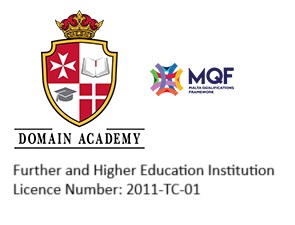Master in Business Administration with AI and Blockchain
The Master in Business Administration has been developed to reward the business managers eager to explore the applications of AI and blockchain in business contexts and to revolutionize industries through enhanced efficiency, security, and transparency.
Intake
March & October
EQF / MQF Level
Level 7
Mode of Delivery
Traditional
Duration of Course
1.5 Academic Years, Weekend Block Delivery
Operational End Date
N/A
N/A
ECTS Credits
90 ECTS
Programme Qualifies for
Get Qualified Scheme
Endeavour Scholarship Scheme
TESS - Tertiary Education Scholarship Scheme
Certificate after completing
Student Success Rate
100
Intake
March & October
EQF / MQF Level
Level 7
Mode of Delivery
Traditional
Duration of Course
1.5 Academic Years, Weekend Block Delivery
Operational End Date
N/A
N/A
ECTS Credits
90 ECTS
Programme Qualifies for
Get Qualified Scheme
Endeavour Scholarship Scheme
TESS - Tertiary Education Scholarship Scheme
Certificate after completing
Student Success Rate
100
Course Description
The Master in Business Administration with a Specialisation in AI & Blockchain Management is an innovative and cutting-edge programme designed for individuals who seek to harness the power of emerging technologies to drive business transformation and innovation. This programme equips students with the knowledge and skills to navigate the complex landscape of artificial intelligence and blockchain, enabling them to lead organisations in the digital age.
This programme has exit award milestones along the path, and modules which can be taken indipendently as awards.
Target Group:
This qualification has been developed in order to reward the business managers of today and provide them with the necessary tools to continue bringing recognition and professionalism to the management sectors.
Tech Enthusiasts: Learners with a background in technology, computer science, or engineering, eager to explore the applications of AI and blockchain in business contexts. They seek to lead innovation and leverage emerging technologies.
Business Innovators: Entrepreneurs and business professionals who recognize the potential of AI and blockchain to revolutionize industries through enhanced efficiency, security, and transparency. They want to learn howto integrate these technologies into their strategies.
Finance and Banking Professionals: Those in finance and banking who are interested in the transformative potential of blockchain for enhancing transaction security, reducing fraud, and streamlining processes like cross-border payments.
Data Analysts and Scientists: Individuals working with data who want to harness AI for predictive analytics, data-driven decision-making, and extracting insights from large datasets.
Supply Chain Managers: Professionals seeking to optimize supply chains through AI-driven forecasting, inventory management, and logistics optimization. They also want to explore blockchain's potential for traceability and transparency in supply chains.
Cyber security Experts: Individuals concerned with data security and privacy, intrigued by the cryptographic and decentralized nature of blockchain.They're interested in learning about blockchain's applications in securing digital assets and identities.
Target Audience:
- 21+
Course Language:
English
Where you will learn:
What you will study
How will you learn
This degree is delivered with a flexible classroom-based method, through a variety of course materials, case studies, discussions, presentations, enquiry-based learning and problem-solving activities. We provide you with key reading and research activities, and you will make the most of our own teaching portal.
Where you will learn:
Lessons will be held in class in our premises at Domain Building, 102/104, Constitution Street, Mosta.
Assessment
Assessments will be designed according to the guidelines of each module specification. In general, the assessments will enable learners to demonstrate achievement of learning outcomes across the individual elements of the programme. The range of assessments utilised will normally include: essays, reports, presentations and other structured assignments and examinations.
Assessments are drafted in conjunction with the curriculum development department and tutor concerned. Final version is confirmed by the curriculum development department.
Assessments are moderated by tutor concerned, then also verified by the Internal Verifier.
Entry Requirement
Any MQF/EQF Level 6 Bachelors Degree in Management, Business or
Any other area deemed fit by management with a minimum of 2 years in a junior management role.
Or
Any MQF/EQF Level 4 Diploma in Management, Business or
Any other area deemed fit by management along with a minimum of 5 years’ work experience in a managerial position,
Good English level at 6 IELTS or equivalent is a must since the MBA is delivered in English. (Does not apply to English speaking countries or students who did a first Degree in English). An appropriate test to show the 6 IELTS might be required through for example Pearson Test of English (PTE)
Note regarding Level 6 IELTS
Speaking: minimum score of 5.5
Listening: minimum score of 5.5
Reading: minimum score of 5.5
Writing: minimum score of 5.5
Recognition of Prior Learning (RPL):
Domain Academy values both formal education and experiential learning. For entry into our MBA programme, we recognize prior learning that is equivalent to master’s level credits. Candidates who may not fully meet the formal entry requirements but can demonstrate relevant, substantial professional experience equivalent to this level are encouraged to apply. Further details on the RPL process are available on our website at Domain Academy's RPL Information (https://www.domainacademy.edu.mt/about/us)
Fees & Funding
MFHEA Licence Nº: 2011 – TC – 01
Further and Higher Education Institution
Listen to what our past students had to say;
Domain Academy proudly collaborates with:



28 Years
of Excellence
8,000+
Satisfied Alumni
98%
Student Success Rate
250+
Active Students
























